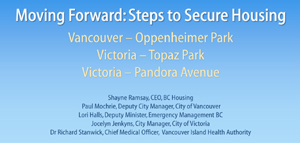Saturday April 25, 2020 ~ VICTORIA
by Mary Brooke ~ West Shore Voice News
The BC Government is working with the cities of Vancouver and Victoria to transition people living in encampments in Oppenheimer Park, Topaz Park and on Pandora Avenue into safe, temporary accommodations with wraparound supports to protect their health and safety in the overlapping COVID-19 and overdose crises.

This announcement was made this morning in Victoria in a joint media event by Minister of Social Development and Poverty Reduction Shane Simpson, the Minister of Mental Health and Addictions Judy Darcy and the Minister of Public Safety and Solicitor General Mike Farnworth.
The April 25 public media announcement was immediately preceded by a 45-minute technical briefing to media by ministry staff and health authority medical representatives.
Focusing on the park encampments:
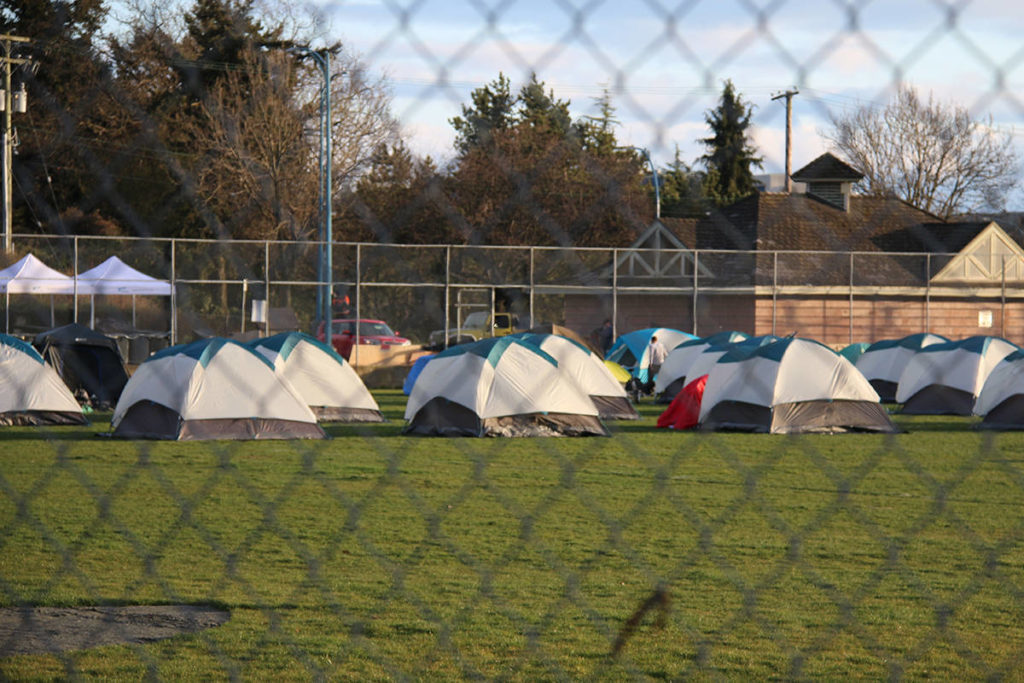
Since March 2020, the Province, in partnership with BC Housing and local municipalities, has worked to secure and operate 686 hotel and community centre accommodations in Vancouver and 324 hotel spaces in Victoria (with more to be arranged, as there are 360 people from Topaz Park and Pandora Avenue in total who will be moved into this indoor accommodation).
This Project allows people from the encampments to safely physically distance, with access to important health, social and other supports.
The encampments will be dismantled by the middle of May, said Minister Simpson. “We have no intention of those people being put back on the street at the end of this process,” said Simpson.
Compliance is expected:
Voluntary compliance is expected, with the evacuation order under the Emergency Program Act. The wrap-around supports and being indoors, as well as the opportunity to move on to more stable housing and life supports is part of the intended manner of success of this program.
As of today, the encampments at Topaz Park and on Pandora Avenue in Victoria, and at Oppenheimer Park in Vancouver, will be secured. No additional persons will be allowed to relocate into the park. As new locations become available, the services of professional movers will relocate the homeless people’s belonging while the people themselves will be transported by workers or taxi.
No COVID-19 cases in the homeless population at this time:
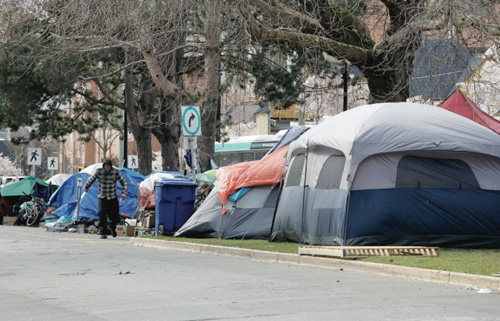
According to health officials, there are no identified cases of COVID-19 in the three tent encampments (two in Victoria and one in Vancouver) at this time.
It was stated in the technical briefing that as the initial incoming cases of COVID-19 infection were a result of community spread that led from people returning from international travel, that there was essentially no exposure to the homeless population from people returning from China or Iran at the beginning of the pandemic in BC.
In fact, the greatest likelihood of COVID-19 infection among the being-housed homeless people is by exposure to their care workers, it was stated by a health official during the briefing.
The subsequent concern is that “once infected” that previously homeless people — who are likely to have underlying health issues due to their stresses on the street — may succumb more readily or more intensely to the COVID-19 infection.
The risk of acquiring COVID-19 is evidently being balanced with the provincial government’s policy goal of ensuring housing for all British Columbians.
Wraparound services & steps toward permanent housing:
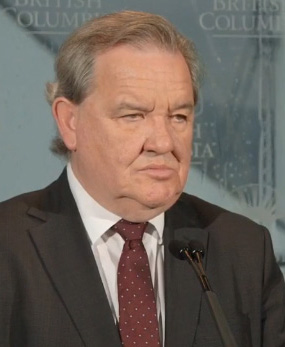
“Providing safe, temporary accommodations and wraparound services for people facing homelessness has been an urgent priority for this government for a long time,” said Shane Simpson, Minister of Social Development and Poverty Reduction. “Now, more than ever, with the concurrent emergencies of the pandemic and the ongoing opioid crisis, it is time to implement long-term housing solutions that take care of and protect our most vulnerable people.”
This is a step toward providing permanent housing for people in these encampments. BC Housing, non-profit and health authority staff, provincial community-integration specialists and municipal staff will be working directly with people living in these three encampments and will help transition people into safer accommodations. There, they will have their own living space and access to services, such as meals, laundry, washroom facilities, health-care services, addictions treatment and harm reduction, storage for personal belongings and other supports.
Two health emergencies in BC:
This is the next step in a phased approach, developed in co-ordination and collaboration with local governments and service delivery partners, to support vulnerably housed people living with elevated risk during two public health emergencies – the COVID-19 pandemic and the ongoing overdose crisis.
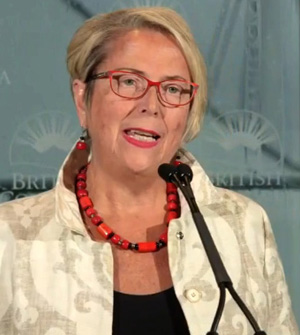
“Having a roof over your head, access to food, health care and social supports are all essential to finding a pathway to hope,” said Judy Darcy, Minister of Mental Health and Addictions. “As we stare down not one, but two public health emergencies, we are saying that we won’t leave anyone behind.”
By transitioning vulnerable people into more secure accommodations, the Province is focused on reducing the immediate health and safety risks to people living and working in these densely populated encampments, as well as those in the neighbouring communities.
“Every day I am inspired by the tremendous leadership the Province has shown British Columbians,” said Lisa Helps, mayor, City of Victoria. “This approach to helping our most vulnerable residents is thoughtful, prudent and ultimately will keep all of us safer during this pandemic.”
About the evacuation order & Emergency Program Act:
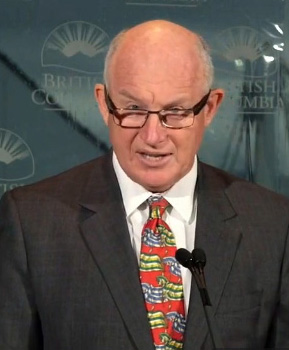
This transition is supported by an order under the Emergency Program Act under the provincial state of emergency issued by Mike Farnworth, Minister of Public Safety and Solicitor General, as part of the Province’s all-of-government response to COVID-19. The order sets May 9 as the deadline to transition people out of the encampments.
“In this provincial state of emergency, our priority is public safety: for those living in these encampments, neighbouring communities and front-line workers delivering services to these vulnerable people,” Farnworth said. “We are committed to working in partnership with local governments and law enforcement to address the elevated health and safety risks within and around these encampments, while making sure people have access to the critical services they need.”
Long-term housing plans:
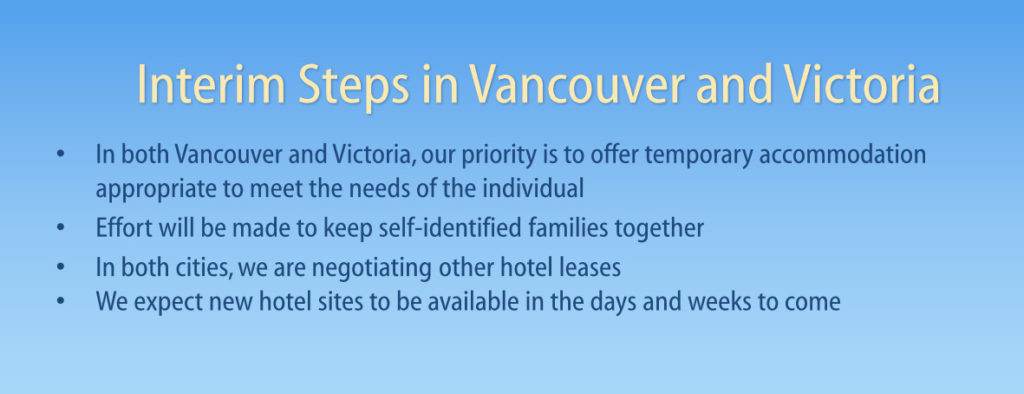
The Province is working on comprehensive long-term plans to secure permanent housing with appropriate supports for those leaving the encampments and moving into safe, temporary accommodations. These plans will include strategies that will mitigate a return to homelessness, and will also make sure the many public safety concerns at the current encampments are addressed, including fire code violations, property crime and sexual violence.
These accommodations are in addition to the more than 1,739 beds that have been secured for vulnerable people, including those experiencing homelessness, in other hotel rooms, community centres and emergency response centres across the province. This step also supports additional and existing work done to date by the COVID-19 Vulnerable Populations Working Group, regional health authorities, BC Housing and the cities of Vancouver and Victoria.
The hotel and motel rooms for this relocation of homeless people from the parks have been acquired at relatively cheap prices, it was stated today, due to the availability of rooms during the pandemic. The government is also looking at purchasing those hotels and motels for continued use, as well as continuing with their program of modular housing.


